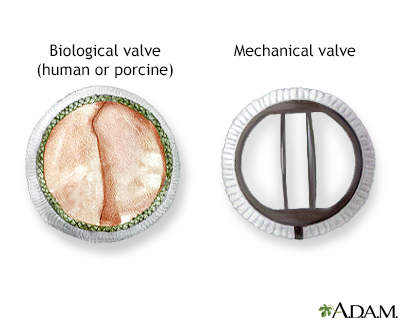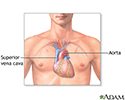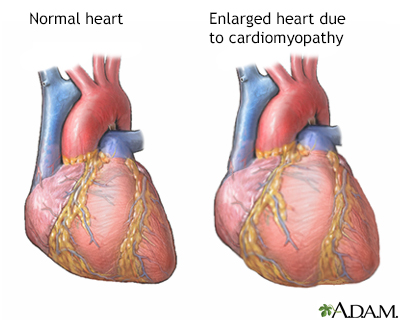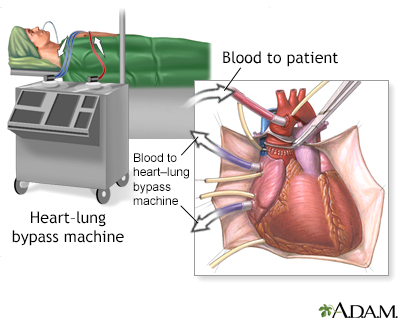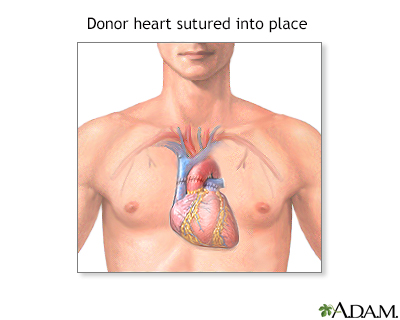Heart failure
CHF; Congestive heart failure; Left-sided heart failure; Right-sided heart failure - cor pulmonale; Cardiomyopathy - heart failure; HFHeart failure is a condition in which the heart is no longer able to pump oxygen-rich blood to the rest of the body efficiently. This causes symptoms to occur throughout the body.
The Basics
Self Care
Talking to your MD
Heart failure - Animation
Heart failure
Animation
Heart attack - Animation
Heart attack
Animation
Heart failure overview - Animation
Heart failure overview
Animation
Heart valve surgery - series
Presentation
Heart transplant - series
Presentation
Heart failure - Animation
Heart failure
Animation
Heart attack - Animation
Heart attack
Animation
Heart failure overview - Animation
Heart failure overview
Animation
Heart failure
CHF; Congestive heart failure; Left-sided heart failure; Right-sided heart failure - cor pulmonale; Cardiomyopathy - heart failure; HFHeart failure is a condition in which the heart is no longer able to pump oxygen-rich blood to the rest of the body efficiently. This causes symptoms to occur throughout the body.
The Basics
Self Care
Talking to your MD
Heart failure
CHF; Congestive heart failure; Left-sided heart failure; Right-sided heart failure - cor pulmonale; Cardiomyopathy - heart failure; HFHeart failure is a condition in which the heart is no longer able to pump oxygen-rich blood to the rest of the body efficiently. This causes symptoms to occur throughout the body.
The Basics
Self Care
Talking to your MD
Review Date: 10/5/2022
Reviewed By: Thomas S. Metkus, MD, Assistant Professor of Medicine and Surgery, Johns Hopkins University School of Medicine, Baltimore, MD. Internal review and update on 07/23/2023 by David C. Dugdale, MD, Medical Director, Brenda Conaway, Editorial Director, and the A.D.A.M. Editorial team.







